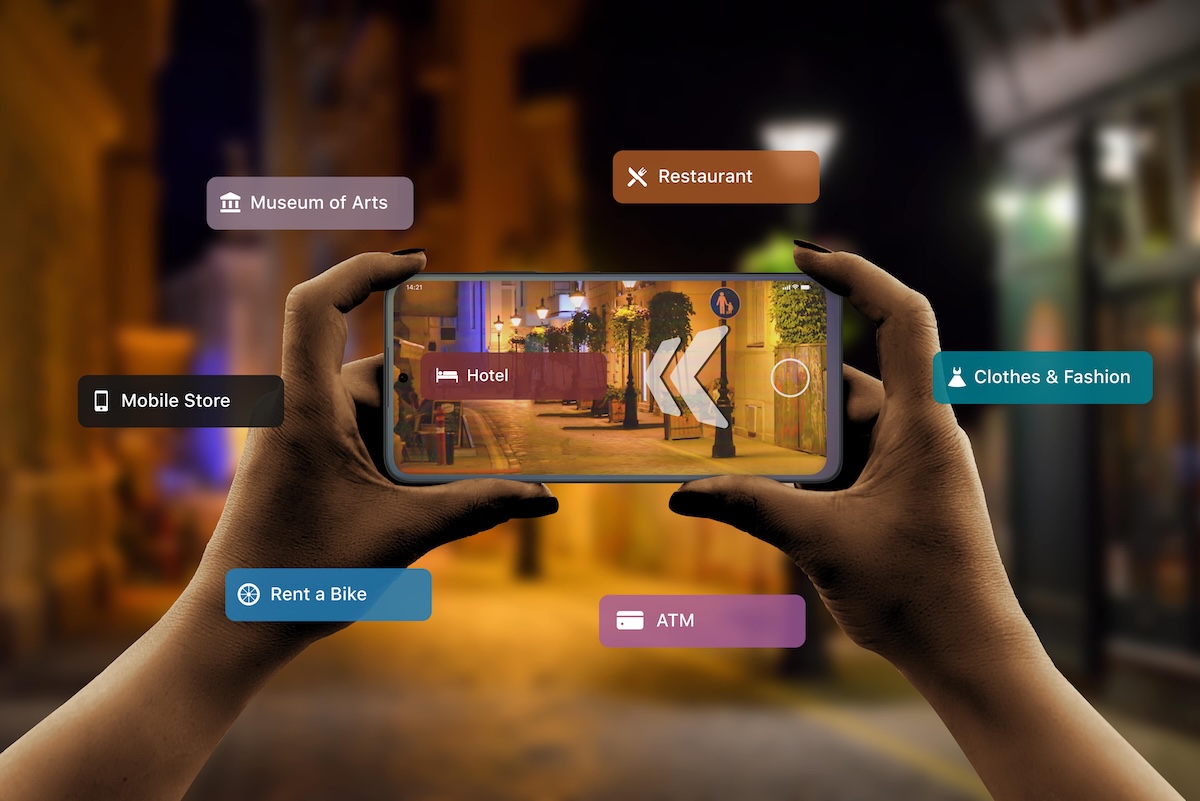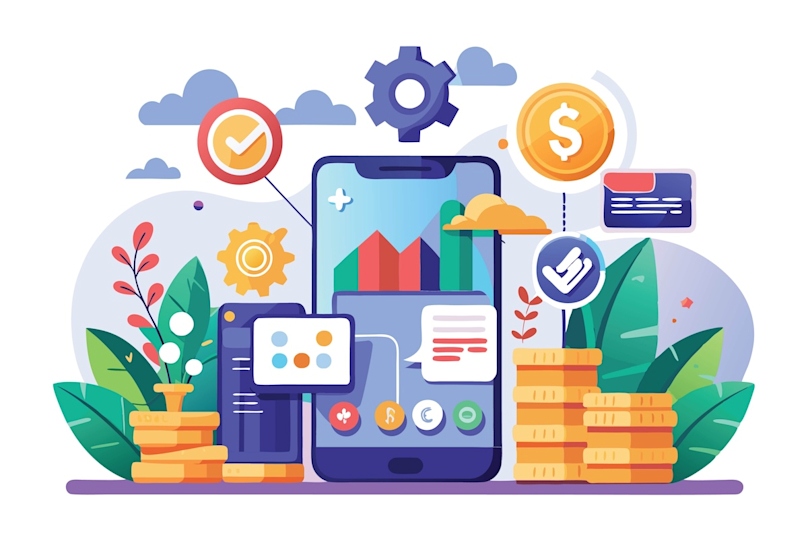Understanding App Monetization
In the rapidly evolving digital landscape, mobile and web applications have become pivotal tools for individual and business users. The primary challenge for developers is creating monetization strategies that seamlessly integrate financial sustainability with exceptional user experience. Modern app development goes far beyond traditional revenue models, exploring sophisticated approaches that provide value while generating sustainable income streams.
Subscription-based models, in-app purchasing, and intelligent advertising have emerged as powerful monetization techniques. These strategies allow developers to create digital economies that offer flexible pricing, virtual goods, premium features, and contextually relevant experiences. By leveraging data-driven insights and advanced technologies like artificial intelligence, developers can design personalized monetization pathways that enhance user engagement and create multiple revenue streams.
The future of app monetization is not about extracting maximum value, but about creating sustainable ecosystems that provide genuine value to users. Successful developers will remain agile, continuously experimenting with strategies that maintain a laser focus on user needs and experiences. By combining technological innovation, user-centric design, and sophisticated revenue models, developers can create applications that are not just financially viable, but truly transformative in the digital marketplace.
Key Monetization Models

In-App Purchases
One of the most direct methods to generate revenue is through in-app purchases. This model involves offering additional features, virtual goods, or exclusive content that users can buy within the app.
Successfully implementing this model can significantly enhance user engagement and drive revenue, given that it aligns with the app’s core purpose and offers genuine value to the users. Many free apps leverage this strategy by offering consumable purchases—such as in-game currency, extra lives, or premium content—that users can buy repeatedly. These purchases create various revenue streams, enabling app developers to sustain and grow their platforms.
Advertising
App advertising stands out as one of the most popular mobile app monetization strategies. Banner ads, interstitial ads, display ads, and video ads offer multiple avenues to display promotions.
Meanwhile, native ads seamlessly integrate into the app's content, ensuring minimal disruption to the user experience. Screen ads or playable ads in particular, maximize impressions by capturing user attention at key moments within the app. Platforms like Unity with unity ads and app monetization solutions such as Google’s suite cater to diversified ad formats, optimizing revenue while keeping engagement high. The Google Play Store and Apple App Store provide extensive tools for app developers to integrate and manage app ads efficiently, making mobile marketing more effective in reaching target audiences.
Subscription Models
For apps that provide recurring value, a subscription model that need credit card could be the most beneficial. This approach ensures a steady income stream by requiring users to pay a subscription fee for ongoing access to the app's content or services.
Often, freemium models are utilized to attract app users, offering basic services for free while charging for premium features. Payment processing solutions available through the Google Play Store and Apple App Store simplify transactions, making it easier for developers to manage subscriptions.
User acquisition strategies for subscription-based apps often involve offering a trial period, encouraging users to experience premium features before committing to a paid plan. By leveraging in-app currency or exclusive app items, developers can further incentivize engagement and long-term retention.
Enhancing User Experience for Profit
User experience is crucial to driving app success. A seamless and intuitive user journey, especially during the initial app onboarding, can set the initial impression and discourage drop-offs. App developers should focus on reducing friction in sign-up processes, ensuring quick loading times, and personalizing the experience based on user data.
Monetization Platforms and Tools
Various monetization platforms can aid in maximizing app revenue, providing analytical insights and optimization tools. Effective platforms help in executing hybrid monetization strategies—where affiliate marketing and partnerships further boost monetization opportunities.
While building a functional and attractive app is important, applying the right monetization strategies is imperative to unlock its full financial potential. By leveraging in-app purchases, integrating effective ad campaigns, and deploying subscriptions, app owners can transform their digital products into profitable ventures while ensuring a positive and engaging user experience. Engaging with modern app monetization platforms and regularly assessing monetization performance, developers can iterate and innovate their way to financial success and user satisfaction.
Profitable Digital App and Product Development

Exploring Advanced Monetization Techniques
Harnessing Gamification
Gamification transforms user interaction by integrating game-like elements into non-gaming apps. This method can significantly boost user engagement and create opportunities for app purchases and rewards. By aligning these elements with the user's journey and core app functions, businesses can enhance loyalty and drive repeat purchases.
The power of gamification lies in its ability to tap into fundamental human psychological motivations. By introducing elements such as point systems, achievement badges, progress tracking, and competitive leaderboards, apps can create a more interactive and compelling user experience. For instance, fitness apps might award virtual medals for workout streaks, while educational platforms can use level progression to motivate learning. These game-like mechanics transform mundane tasks into engaging challenges, encouraging users to spend more time within the app and increasing the likelihood of converting free users to paid subscribers.
AI-Driven Personalization
Artificial Intelligence (AI) shapes personalized user experiences that elevate app engagement. By analyzing user data, AI can suggest pertinent in-app content, cater to user preferences, and promote targeted purchases. These intelligent recommendations can lead users seamlessly through the purchase funnel, improving conversion rates and enriching user satisfaction.
Modern AI technologies go beyond simple recommendation engines. Advanced machine learning algorithms can predict user behavior with remarkable accuracy, creating hyper-personalized experiences that feel intuitive and natural. These systems can adapt in real-time, learning from each user interaction to provide increasingly refined suggestions. For example, a streaming app might not just recommend content based on previous viewing history, but also consider factors like time of day, mood, current trends, and even subtle contextual cues that indicate user preferences.
Blockchain Utilization
Adopting blockchain technology for transactions can boost app trustworthiness and security. This approach is especially beneficial for apps focusing on in-app purchases or financial transactions. Blockchain ensures transparent and secure dealings, potentially encouraging users more at ease with app monetization features.
Blockchain's decentralized nature provides several transformative advantages for app monetization. By eliminating intermediaries and creating immutable transaction records, blockchain technology can significantly reduce transaction costs and minimize fraud risks. This is particularly powerful in global apps where traditional payment systems might be complex or expensive. Cryptocurrency integration allows for seamless international transactions, enabling developers to create more inclusive monetization strategies. Moreover, blockchain can facilitate innovative economic models within apps, such as tokenization of in-app assets, creating new ways for users to interact with and derive value from digital platforms.
Each of these strategies—gamification, AI-driven personalization, and blockchain utilization—represents a sophisticated approach to modern app monetization. By understanding and implementing these technologies thoughtfully, developers can create more engaging, secure, and user-centric applications that not only generate revenue but also provide genuine value to their users.
Transformative User Experience for Revenue Growth
A compelling user experience is integral to monetization success. Leveraging tools like Google Analytics and behavior-centric platforms such as Hotjar provides insights into user interactions. By identifying pain points and optimizing user flows, developers can minimize drop-offs and enhance user satisfaction through continuous innovation.
Use cases from Mobile Reality
NFT Marketplace Development: Mobile Reality has explored the potential of NFT (Non-Fungible Token) marketplaces, which enable the buying and selling of unique digital assets. These platforms often monetize by charging transaction fees, listing fees, or offering premium services to users. To monetize it properly it's vital to build community around your marketplace and handle marketing activities properly via outbound and inbound activities
Web3 Music Platforms: In their exploration of blockchain and Web3 technologies, Mobile Reality has highlighted music platforms that utilize these technologies. Such platforms enable micropayments and frictionless monetization of digital content, allowing fans to support artists through small payments for individual songs or other forms of content consumption. This approach can lead to more sustainable revenue streams for artists, especially independent and emerging ones. Based on this brands play crucial role in app monetization
Freemium Social Networking App: Mobile Reality developed a social networking app that follows a freemium monetization model. The app provides essential features like messaging, profile customization, and content sharing for free, while offering premium subscriptions that unlock advanced features such as enhanced profile visibility, ad-free browsing, and exclusive content. Additional monetization streams include in-app purchases for virtual goods and a revenue-sharing model for influencers who engage their audience through premium content.
Integration of Hybrid Monetization Models (eq. affiliate marketing)

The fusion of multiple monetization strategies—affiliate marketing, purchases, and ads—not only diversifies revenue streams but also balances user experience with profitability. For example, employing a mix of native ads and banner ads as guided by platforms like Unity and Google Play ensures minimal disruption to user engagement.
The journey to nurturing a lucrative mobile app extends beyond just crafting a brilliant product. By venturing into innovative monetization approaches such as gamification, AI personalization, and blockchain, app developers can stimulate interest, optimize retention, and boost revenue. Continual assessment and refinement of monetization models, based on real-world usage and feedback, will help future-proof digital applications, securing both financial success and user satisfaction.
Leveraging Digital Marketing and App Advertising
Innovative Marketing Approaches for App Success
In the realm of developing lucrative mobile apps and digital products, integrating app monetization strategies with cutting-edge digital marketing is essential. The ongoing evolution of the digital landscape suggests new marketing strategies can significantly complement mobile app monetization efforts, driving greater user engagement and sustained revenue.
Harnessing the Power of Social Media
Building Online Communities - Social media platforms offer dynamic avenues to build communities around your app. By creating tailored content strategies that resonate with your app's core audience, you increase the likelihood of app purchases and enhance brand loyalty. Regular engagement through posts, updates, and interactions can drive consistent traffic and user retention, pivotal in app monetization models.
Influencer Partnerships - Leveraging influencers can be a game-changer. Influencers with a strong connection to your target demographic can offer authentic endorsements, driving higher app installs and minimizing the cost per acquisition. By collaborating with the right influencers, brands can weave a narrative that highlights app features naturally, steering audiences towards app store engagement and in-app purchases.
The Role of Data-Driven Marketing in app monetization models
With access to insightful analytics, app developers can tailor marketing strategies that are both effective and efficient. Platforms like Google Play and App Store analytics provide in-depth data about user behavior, which can be used to refine marketing approaches and boost ROI.
Optimizing campaigns through A/B testing and user feedback helps maintain alignment with user expectations, fostering authentic engagement and raising conversion rates.
Implementing targeted promotions and video ads that echo user preferences can streamline the purchase funnel, making monetization more impactful.
Data-driven marketing has become the cornerstone of sophisticated app monetization strategies. While advanced analytics and machine learning provide unprecedented insights, human strategic thinking remains paramount. The true power lies in interpreting data through the lens of user experience, understanding nuanced consumer behaviors, and crafting monetization models that balance technological capability with genuine user value.
— Marcin Sadowski, CTO at Mobile Reality
Personalization in Marketing Campaigns

Enhancing User Retention
In the competitive field of app development, personalized marketing is pivotal for fostering user loyalty. By leveraging data analytics, brands can tailor experiences that resonate on an individual level, fostering heightened user engagement that translates into increased revenue. Personalization extends beyond tailoring offers—it involves customizing entire user journeys to ensure users feel valued and understood. AI-driven recommendations, behavior-based notifications, and dynamic content adaptation further refine engagement strategies, leading to stronger retention and increased app purchases.
Incorporating machine learning and predictive analytics allows brands to anticipate user preferences, proactively offering relevant content, promotions, or in-app incentives. By implementing personalized onboarding experiences and adaptive UI elements, developers can create a seamless and intuitive user journey that enhances satisfaction and long-term commitment.
Role of Branding in the Ecosystem
Effective branding strategies are essential in cultivating distinctiveness in a crowded market. A cohesive brand presence ensures consistent user connection across platforms, enhancing user memory and recognition. Strong brand equity drives loyalty, resulting in improved app monetization models and a competitive edge in the marketplace.
Brand storytelling plays a critical role in shaping how users perceive and interact with an app. Establishing a unique visual identity, tone, and user experience fosters a strong emotional connection with the audience. Additionally, cross-platform branding—ensuring seamless integration across websites, social media, and mobile apps—reinforces credibility and trust.
Collaborating with influencers and leveraging community engagement also contribute to brand strength. Encouraging user-generated content, reviews, and social sharing helps amplify brand reach, further solidifying a loyal user base that drives sustainable revenue growth.
Emerging Technologies in User Experience

AR and VR technologies present innovative avenues to elevate user experience, offering immersive environments that heighten engagement. Integrating these technologies enhances user interaction and can directly impact app monetization by encouraging longer app usage sessions and facilitating higher transaction volumes.
Retail and e-commerce apps use AR for virtual try-ons, allowing users to experience products before purchasing, thus increasing conversion rates. In gaming and entertainment, VR enhances realism, creating a more engaging experience that justifies premium in-app purchases or subscription-based monetization models. Educational and training apps also benefit from AR/VR, providing interactive learning experiences that can be monetized through tiered pricing or exclusive content offerings.
Beyond direct monetization, AR and VR improve user retention by making experiences more engaging, interactive, and memorable. As these technologies become more accessible, integrating them into marketing strategies and app functionalities will be key to staying ahead in the competitive digital landscape.
Expanding Revenue Opportunities Beyond the App
The mobile app industry offers monetization opportunities beyond traditional app experiences. Developers can explore branded partnerships, affiliate marketing, and exclusive content licensing to generate additional income. Additionally, cross-platform monetization—such as offering premium app features through web-based services—can expand revenue streams and attract a broader audience.
Emerging Monetization Strategies
Data Monetization Anonymized user insights have become a valuable commodity. By carefully collecting and analyzing user behavior, app developers can create additional revenue streams through:
Aggregated market research reports
Trend analysis for businesses
Anonymized demographic insights
Predictive consumer behavior modeling
Advanced Advertising Approaches In-app advertising has transformed from intrusive pop-ups to sophisticated, targeted placements that enhance user experience:
Contextually relevant ad integration
Personalized advertising based on user preferences
Native advertising that blends seamlessly with app design
Performance-based advertising models with revenue sharing
Virtual Economies and Digital Assets Creating internal economies within apps has become a powerful monetization technique:
Sale of digital goods and cosmetic items
Limited edition virtual collectibles
Character or profile customization options
Tradeable digital assets with real-world value
Freemium and Strategic Feature Unlocking Sophisticated freemium models allow developers to provide value while creating monetization opportunities:
Tiered access to app features
Time-limited premium functionality
Strategic feature gating that encourages upgrades
Personalized premium packages based on user behavior
Strategic Considerations

By continuously optimizing monetization models and staying adaptable to market trends, developers can build profitable apps that offer lasting value to users. Success requires a deep understanding of user needs, market dynamics, and innovative revenue generation techniques.
The key is to create a balanced approach that generates revenue while maintaining a positive user experience and providing genuine value through the application.
Conclusion
A strategy integrating personalized marketing, cutting-edge technology, and diverse revenue models can significantly enhance app monetization potential. By focusing on user experience and maintaining a robust brand presence, developers can successfully navigate the digital product landscape, driving both initial installs and sustained revenue growth.
SaaS Business Insights
The SaaS industry is ever-evolving, with new trends, technologies, and challenges emerging continuously. At Mobile Reality, we delve deep into the intricacies of SaaS business strategies, offering insights and expert guidance. We invite you to explore our comprehensive articles that cover a wide range of SaaS-related topics:
- Overcoming the Significant SaaS Challenges
- Elevate Your SaaS Strategy with Top SEO Tools
- SaaS Architecture Guideline: Multi Tenant vs Multi Instance
- PoC vs MVP: Uncovering the Critical Variances
- Mastering Software Development Estimation Techniques
- Mastering Automated Lead Generation for Business Success
- Elevate Your Tech Strategy with a Fractional / Time CTO
These resources are curated to expand your knowledge and support your decision-making in the SaaS sector. Mobile Reality is recognized as a leader in SaaS development, providing cutting-edge solutions for various businesses. If you're considering expanding your SaaS capabilities or need expert guidance, contact our sales team for potential collaborations. Those interested in joining our dynamic team are encouraged to visit our careers page to explore exciting opportunities. Join us as we navigate the dynamic world of SaaS business!




